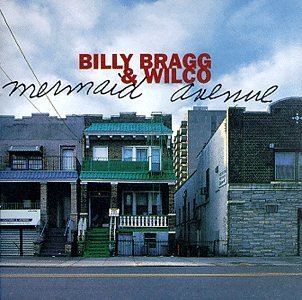Zack: It’s been a while since we listened to Joy
Division, and I haven’t really gone back and listened to anything by them in a
while. I knew New Order was basically Joy Division sans lead singer, and a
friend had told me that New Order had their moments but generally weren’t as
good. Still, when I first started listening to this album, I was struck by how
different it sounded than my memory of Joy Division. It reminded me a lot of
some of the happier tracks by The Cure. Wikipedia informs me that this is the album
where New Order really started to break away from its post-punk ancestry and
adopt a new face as a dance rock group. That definitely shone through. At
first, I wasn’t really feeling this album. It had the popiness of Scissor
Sisters or The Cardigans, both of whom I loved, but with that certain '80s
cheese. But I realized comparing Low-Life to either of the albums by those two
bands we listened to isn’t a fair comparison. What I should be comparing
Low-Life to is all those other post-punk albums from this era, which I have
repeatedly bashed for all sounding the same. This definitely didn’t sound like
those, and I appreciated it for that. Most of the songs had a catchy riff, and
Elegia was a phenomenal instrumental track. It wasn’t the best pop rock album I’ve
ever listened to, but it was solid and certainly contributed a few songs to a
playlist I may make sometime in the future. Isn’t that what really matters?
Favorite Tracks: Elegia; This Time of Night; Love Vigilantes
Emily: I'm usually a fan of the '80s pop/new wave/post-punk albums we listened to. Their bright, synthesizer-enhanced sound draws me in and gets me to dance or at least bob my head for a good 45 minutes, as I happily rank each song as excellent or very good. However, after the initial listen and blog post, I rarely go back to these albums. They're like candy for the ears: sweet for a bit, but with no lasting value. And listen too much, and you'll definitely get sick of it. That's how I felt about New Order. Low-Life has whispers of the band's post-punk incarnations, but with a glossy '80s synthesizer pop sheen. I really liked it for the first few tracks, then got a little bored (though the last track pulled me back in). And will I listen to this album again? Doubtful, but at least I know it's here if I need a little ear candy.
Favorite Tracks: Love Vigilantes; This Time of Night; Face Up

.jpg)


